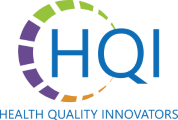Health Quality Innovators (HQI) is pleased to announce the winners of the fifth annual Health Quality Innovator of the Year Awards. The Awards demonstrate HQI’s commitment to improving health care by recognizing health care organizations that are using evidence-based approaches to quality improvement that deliver better care, better population health and lower health care costs. The Health Quality Innovator Awards are HQI’s marquis program for gathering and sharing evidence-based, practical methods for enhancing quality of care across all care settings.
The 2021 Health Quality Innovators of the Year are:
Collaboration:
SoutheastHEALTH in Missouri implemented strategies and developed partnerships to improve patient care and outcomes related to chronic disease management, readmissions, and social determinants of health issues within their community. Their achievements were made with minimal financial impact to the organization in relation to staffing and other resources while providing improved patient care and outcomes. SoutheastHEALTH’s plan stemmed from a community health needs assessment where information was gleaned from town hall focus group meetings held in the surrounding service region. The assessment was used in the development of their three-year strategic plan, which encompassed readmission reduction and community collaborations. Their initiative has grown from 25 patients to 245 patients.
Health Equity:
Appalachian Agency for Senior Citizens of Virginia launched an innovative medical transportation pilot program to help older adults in this medically underserved region receive consistent care to treat their chronic health conditions. The goal for this program was to increase the availability of medical transportation by 85 percent, however that goal was met and surpassed as transportation availability increased to 98.9%. The requests for rides increased from 8 per month to 227 per month, or a 2,738% increase. As a result, local hospitals saw a reduction in readmission rates that resulted in cost savings of about $9,500 for each readmission.
Patient Engagement and Activation:
Bay Aging implemented a robust care coordination program in Virginia to help patients achieve an optimal level of health and well-being while living in their preferred setting. The percentage of participants that completed at least one goal in their care plan was 100%, which is 15 percentage points above the stated baseline goal of 85%. Through this program, Bay Aging achieved accreditation for Case Management for Long-Term Services and Supports through the National Committee for Quality Assurance (NCQA) in September 2021. They met strict standards in areas such as conducting comprehensive assessments, managing care transitions and measuring quality improvement to support people who remain living independently.
Population Health:
Sentara RMH Medical Center in Virginia enhanced their diabetes education program when data revealed a significant increase in uncontrolled diabetes and hypertension in their community. This was a result of patients not seeking health care services during the COVID-19 pandemic. The diabetes education program was adapted to reach patients in different settings and from different cultures. The program improved the quality of life, reduced the mortality rate and decreased hospital admissions for their patients. By 2021, their shift from a focus on hospital-based diabetes education to Diabetes Self-Management Education and Support (DSMES) program, held in outpatient primary care settings, has served approximately 900 patients.
Rural Health:
Grande Ronde Hospital and Clinics, an independent hospital predominantly serving Union County in a mountainous area of Oregon with harsh winters, implemented strategies and tactics to improve access to care and support better outcomes for patients and families. Some of these include employing additional pediatricians and psychiatrist and psychiatric nurse practitioners, implementing daily huddles involving the hospital and clinics and transitioning three separate electronic medical record systems to a single system across the care continuum. As a result, this hospital achieved low rates for readmissions of complex and chronic patients, as well as behavioral health patients.
Share
National Healthcare Decisions Day (NHDD) is an annual initiative recognized on April 16 to encourage and empower people to begin conversations about their wishes for care through the end of life. NHDD is both for individuals and community leaders. It is about normalizing discussions about this topic each year and recognizing that wishes or the […]

